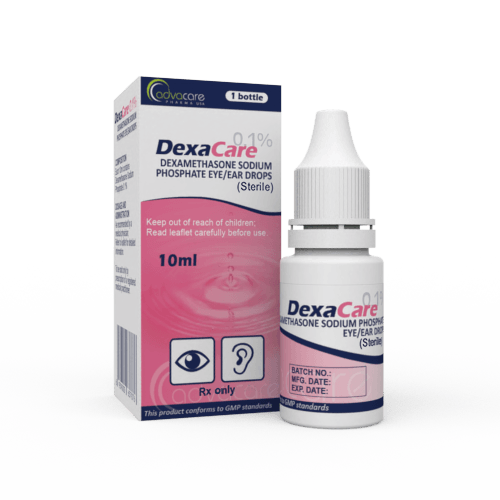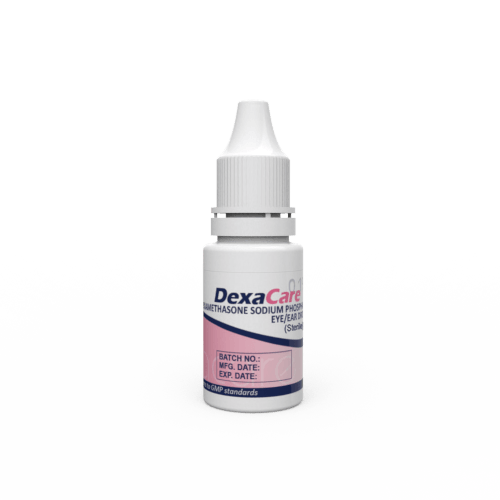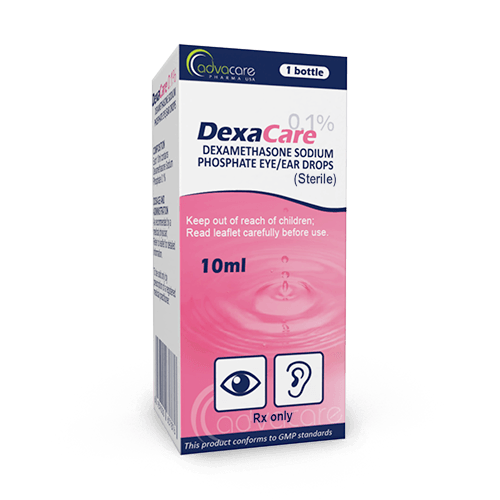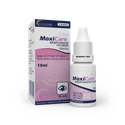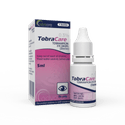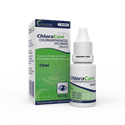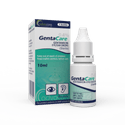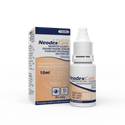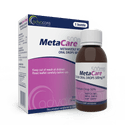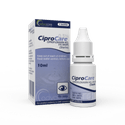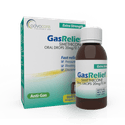- Home›
- Pharmaceuticals›
- Medical Eye Drops›
- Dexamethasone Eye Drops
Dexamethasone Eye Drops
Dosage
Packaging
What is Dexamethasone?
Active Ingredients: Dexamethasone
Dexamethasone Eye Drops are a steroidal drug used to treat eye inflammation caused by conditions like injury, allergies, acne, shingles, uveitis, and radiation. It relieves symptoms such as swelling, irritation, and redness. Treatment with this ophthalmic solution may help prevent permanent damage to the eyes.
Dexamethasone Sodium Phosphate belongs to a class of drugs known as corticosteroids. It works to decrease the immune system's response, which reduces symptoms like itching, swelling, redness, and allergic reactions.
Dexamethasone Eye Drops are particularly effective in controlling inflammation by inhibiting multiple inflammatory cytokines, thereby reducing the symptoms associated with various eye conditions. This medication can be crucial in managing severe or chronic inflammation that cannot be adequately controlled with non-steroidal drugs. The rapid onset of action of Dexamethasone makes it suitable for acute inflammatory conditions, providing quick relief from discomfort and pain.
The use of these eye drops requires careful consideration due to potential side effects associated with prolonged use of corticosteroids. These include increased intraocular pressure, which can lead to glaucoma, cataract formation, and potential worsening of infections in the eye.
Overuse or prolonged use can increase the risk of systemic side effects, as well as local ocular side effects. Regular follow-up appointments with an ophthalmologist are recommended to monitor the response to treatment and adjust the therapy as needed. Patients should be instructed to report any new eye symptoms such as vision changes or pain, which may indicate an adverse reaction to the medication.
AdvaCare Pharma is the manufacturer and exporter of Dexamethasone Sodium Phosphate Eye Drops. We offer a wide range of high-quality and cost-effective medications that are available for distribution. Our medications are produced in our GMP-certified facilities in China, India, and the USA.
Why are we a trusted Dexamethasone manufacturer?
AdvaCare Pharma is a GMP-compliant manufacturer of Dexamethasone Eye Drops. Over the past two decades, we have cultivated a strong reputation as a leading pharmaceutical supplier across 65 nations. As a reliable Dexamethasone manufacturer, AdvaCare Pharma partners with pharmaceutical distributors, hospitals, pharmacies, NGOs, and government institutions to provide 30+ superior-quality eye and ear (ophthalmic/otic) medicines to global communities.
Uses
How are Dexamethasone Eye Drops used?
This medication is manufactured as a sterile topical solution, which is intended for administration in the eyes. Always wash hands with soap and water before and after using this medication.
Contacts should not be worn during treatment with this medication.
What dose should be taken?
For eye inflammation, the usual dose for adults is 1-2 drop, applied to the afflicted eye 1-2 times a day.
Refer to a doctor or pharmacist for guidelines on dosage.
How does Dexamethasone work to reduce eye inflammation?
Dexamethasone works by inhibiting the production of substances that cause inflammation in the body. It decreases the release of inflammatory cytokines and stabilizes cell membranes, thereby reducing swelling, redness, and pain in the affected eye.
Is Dexamethasone effective against bacterial or viral eye infections?
These drops will not be effective for use against viral or bacterial infections. They are designed to deal with inflammation, not to combat infections. If an infection is present, the physician will prescribe other appropriate anti-infective treatments.
Can Dexamethasone Eye Drops be used in children?
Dexamethasone Eye Drops can be used in children, but the dosage may differ from adults and should be determined by a pediatrician or eye specialist. It is important to monitor children closely for any side effects during treatment.
How quickly does Dexamethasone Eye Drops start to work?
Dexamethasone Eye Drops typically begin to relieve symptoms of eye inflammation within a few hours of application, with significant improvement often observed within a couple of days.
Can Dexamethasone Eye Drops be used for dry eye syndrome?
They are not typically used for treating dry eye syndrome, as they are formulated to treat inflammation rather than to lubricate the eyes.
Are there any long-term risks associated with the use of Dexamethasone Eye Drops?
Long-term use can increase the risk of developing cataracts, glaucoma, and may lead to secondary eye infections. Regular monitoring by an eye specialist is important for patients on prolonged treatment.
Can Dexamethasone Eye Drops be used concurrently with other eye drops?
Dexamethasone Eye Drops can be used with other eye drops, but it is advisable to wait at least 5-10 minutes between applications of different products to prevent dilution and ensure effectiveness.
How does Dexamethasone differ from non-steroidal anti-inflammatory eye drops?
Dexamethasone is a corticosteroid and works by suppressing the immune response and inflammation more broadly, whereas non-steroidal anti-inflammatory eye drops (NSAIDs) primarily inhibit the enzymes directly responsible for inflammation. Steroids, like Dexamethasone, are often more potent for severe inflammation.
Can Dexamethasone Eye Drops affect vision?
Temporary blurred vision can occur immediately after applying. If blurring persists or there are significant changes in vision, a healthcare professional should be consulted.
Can Dexamethasone Eye Drops be used after eye surgery?
Dexamethasone Eye Drops are sometimes used postoperatively to reduce inflammation, but their use should be guided by an eye surgeon based on the specific type of surgery and individual patient needs.
Is Dexamethasone suitable for individuals with diabetes?
Patients with diabetes should use Dexamethasone Eye Drops cautiously, as corticosteroids can potentially increase blood glucose levels. Diabetic patients should monitor their blood sugar levels closely during treatment.
Can Dexamethasone Drops be used if there is pus or discharge from the eye?
If there is pus or discharge, which could indicate an infection, its use should be evaluated by a healthcare provider, as steroids can exacerbate infections.
Are Dexamethasone Eye Drops effective in treating eye redness due to fatigue or minor irritants?
These drops are not typically used for such conditions. They are prescribed for more significant inflammatory conditions of the eye.
Is it necessary to avoid sunlight or UV exposure while using Dexamethasone Eye Drops?
While there is no specific requirement to avoid sunlight, patients with certain eye conditions may be advised to limit UV exposure as a general eye health precaution.
Is there a rebound effect after stopping Dexamethasone Eye Drops?
A rebound effect, where symptoms return or worsen after stopping treatment, can occur, especially if they are used for a prolonged period and then abruptly discontinued.
Can Dexamethasone Drops be used simultaneously with oral corticosteroids?
If a patient is taking oral corticosteroids, the use of these drops should be discussed with a doctor. Concurrent use might increase the overall exposure to corticosteroids, potentially leading to an increased risk of systemic side effects.
How do these drops compare with antibiotic eye drops in treating eye infections?
Dexamethasone is primarily used for its anti-inflammatory properties and does not have antibacterial effects. In cases of bacterial eye infections, antibiotic drops are necessary, and Dexamethasone may be used concurrently to reduce inflammation.
What precautions should be taken if these drops are prescribed post-eye surgery?
Post-surgery, Dexamethasone Drops may be prescribed to control inflammation. Use them exactly as directed and attend all follow-up appointments. Improper use can affect the healing process and the surgical outcome.
Is it safe to use cosmetics or other eye makeup while using these eye drops?
In general, avoid using eye cosmetics or makeup while treating eye conditions to prevent additional irritation or infection. If cosmetics are necessary, they should be applied carefully, avoiding contamination of the eye and the dropper tip.
Are there any specific environmental factors to avoid while using Dexamethasone Eye Drops?
While using these drops, avoid environments with high risk of eye irritation or potential contamination, such as dusty or smoky areas, to prevent exacerbating eye conditions.
Side Effects
As with all pharmaceuticals, some unwanted effects can occur from the use of Dexamethasone Eye Drops.
Common side effects include, but may not be limited to: • mild stinging or irritation of the eyes
Serious side effects may include:
- signs of an allergic reaction
- blurry vision or other signs of vision changes
- signs of an eye infection
- severe eye pain
For a comprehensive understanding of all potential side effects, consult a medical professional.
If any side effects are experienced, consider the duration and intensity of the symptoms. Mild side effects often resolve on their own, but any persistent or worsening issues manifest, especially severe eye pain, vision changes, or signs of an eye infection, seek medical attention promptly. These more serious side effects may require an adjustment to the treatment or additional medical intervention to ensure eye health is not compromised.
Precautions
Do NOT use Dexamethasone Eye Drops if:
- You are allergic to Dexamethasone or any of the other ingredients.
- You have an eye infection.
Dexamethasone may not be suitable for people with certain conditions, so it is important to consult with a doctor if: • You have any eye problems, such as cataracts or glaucoma.
You may experience blurred vision after using these eye drops. This side effect is usually temporary, but if it persists or worsens, seek the advice of a doctor. Do not drive or use heavy machines until your vision is clear.
This medicine should not be used during pregnancy, and it should only be used while breastfeeding if the benefits outweigh the risks. Consult a doctor or healthcare professional before treatment.
References
Treatment of adenoviral keratoconjunctivitis with a combination of povidone-iodine 1.0% and dexamethasone 0.1% drops: a clinical prospective controlled randomized study
This study focused on determining the efficacy of combination povidone-iodine (PVP-I) 1.0% eyedrops and dexamethasone 0.1% eyedrops in the treatment of adenoviral keratoconjunctivitis.
This prospective, randomized, controlled, double-blinded clinical trial involved patients with recent adenoviral keratoconjunctivitis, diagnosed clinically and confirmed by PCR. The patients were randomly assigned to one of three treatment groups: the study group received PVP-I 1.0% and dexamethasone 0.1%, control group 1 received dexamethasone 0.1%, and control group 2 received lubricating eyedrops (hypromellose 0.3%). Treatment was administered four times daily in all groups. All patients were examined and completed a questionnaire before treatment and on the 3rd, 5th, and 7th days of treatment.
This study included 78 eyes (26 in each group). The most common pathogen was adenovirus type 8 that was in 83% of the cases.
The study group showed the fastest improvement in symptoms such as red eyes, discharge, superficial punctate keratitis, and pseudomembranes (p < 0.001). These patients achieved near-complete recovery within 5-7 days, as confirmed by a reduction in adenovirus titres via PCR. The control 2 group exhibited the slowest improvement. Subepithelial infiltrates (SEI) were observed in 44% of the control 1 group, 20% of the control 2 group, and none in the study group and the control 1 group had the slowest rate of adenovirus titre reduction.
The findings from this study indicate that PVP-I 1.0% and dexamethasone 0.1% four times a day can reduce symptoms and expedite recovery in epidemic keratoconjunctivitis patients.

You might be interested in...
Why AdvaCare Pharma?
As an industry leader, we are aware of our responsibility to provide affordable and sustainable solutions to improve healthcare worldwide.
